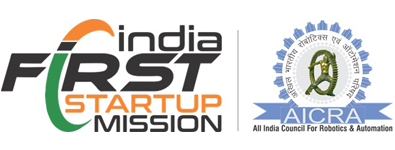When a startup decides to raise funds from the public including institutional investors as well as individuals, by selling its shares, it is known as an IPO (Initial Public Offering). IPO is commonly related to ‘going public’ as the general public now wants to invest in your company by buying shares.
It's not an obligation for the founders to disclose their financial statements before public if they go for an IPO. But the company must submit information related to financial statements, the purpose of raising funds, etc. to the SEBI. IPO basically helps you grow and diversify in areas of choice. For taking your startup to the next level, you should know which stage of funding you want to go for, for what purpose.
Such decisions made at the right time can be boon for your business.
AICRA would support their StartUp Members to raise funds through government schemes, angel investors, and ending with venture capital (VC)
Eligibility Criteria:
- A startup, recognized by DPIIT, incorporated not more than 2 years ago at the time of application.
- The startup must have a business idea to develop a product or a service with a market fit, viable commercialization, and scope of scaling.
- The startup should be using technology in its core product or service, or business model, or distribution model, or methodology to solve the problem being targeted.
- Preference would be given to startups creating innovative solutions in sectors such as social impact, waste management, water management, financial inclusion, education, agriculture, food processing, biotechnology, healthcare, energy, mobility, defence, space, railways, oil and gas, textiles, etc.
- Startup should not have received more than Rs 10 lakh of monetary support under any other Central or State Government scheme. This does not include prize money from competitions and grand challenges, subsidized working space, founder monthly allowance, access to labs, or access to prototyping facility.
- Shareholding by Indian promoters in the startup should be at least 51% at the time of application to the incubator for the scheme, as per Companies Act, 2013 and SEBI (ICDR) Regulations, 2018.
- A startup applicant can avail seed support in the form of grant and debt/convertible debentures each once as per the guidelines of the scheme.

